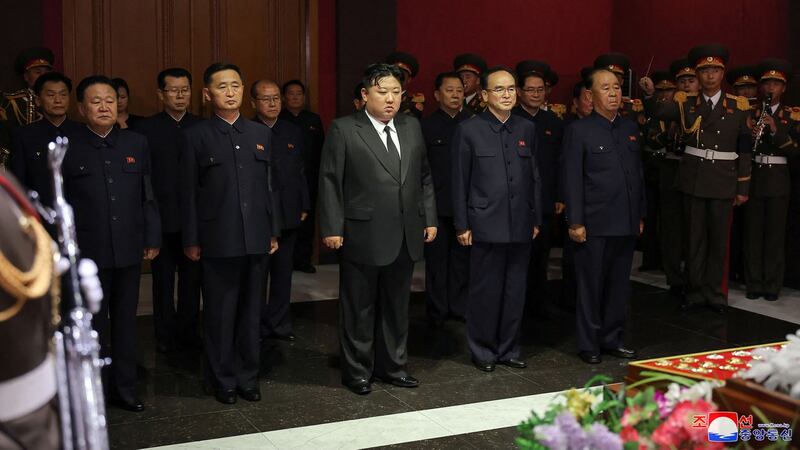Kim Ki Nam, known as North Korea’s propaganda master, has died at 94, North Korea’s state media reported on Wednesday.
“Comrade Kim Ki Nam, who had been receiving treatment in hospital since April 2022 due to old age and multiple organ failure, was unable to be resuscitated and sadly passed away on May 7 2024 at 10 o’clock at the age of 94,” said the Korean Central News Agency (KCNA).
North Korean leader Kim Jong Un visited the funeral hall of the former secretary of the Central Committee of the ruling Workers’ Party (WPK) and will lead the state funeral committee for his burial, KCNA added.
“Kim Jong Un paid silent tribute to Kim Ki Nam who made contributions to the sacred struggle for the development of the WPK, modeling the revolutionary ranks on the monolithic ideology and the victorious advance of the socialist cause,” said KCNA.

Kim Ki Nam spent decades overseeing propaganda operations in the totalitarian regime, including building personality cults around its leaders.
The relationship between Kim Jong Un and Kim Ki Nam is believed to date back to 2009, when Kim was named successor to his father, Kim Jong Il.
Known as a political mentor to Kim Jong Un, the former secretary laid the ideological foundations of the one-party system in the 1970s as chief writer for the party’s monthly Workers’ Party magazine and daily Rodong Sinmun.
In the mid-1980s, he took control of the party’s propaganda and agitation department, where he was a close confidant of then-leader Kim Jong Il and spearheaded the idolization of the North Korean supreme leaders.
In 2005, as vice chairman of the Committee for the Peaceful Reunification of the Fatherland, he traveled to Seoul as the head of a delegation to attend the August 15th National Festival, becoming the first North Korean official to visit South Korea’s National Cemetery since the Korean War.
When South Korea’s former President Kim Dae-jung died in August 2009, he traveled to Seoul as a special envoy of North Korean leader Kim Jong Il and headed the North Korean condolence delegation.
At that time, he delayed his return to Pyongyang and visited South Korea’s Presidential Blue House to meet then-President Lee Myung-bak where he voiced his commitment to improving inter-Korean relations.
His role as a key player in the North Korean regime and his high-profile role in holding the regime together around leader Kim Jong Un led to him being targeted by international sanctions.
The United States and South Korea imposed sanctions on him in July and December 2016.
Edited by Mike Firn.
